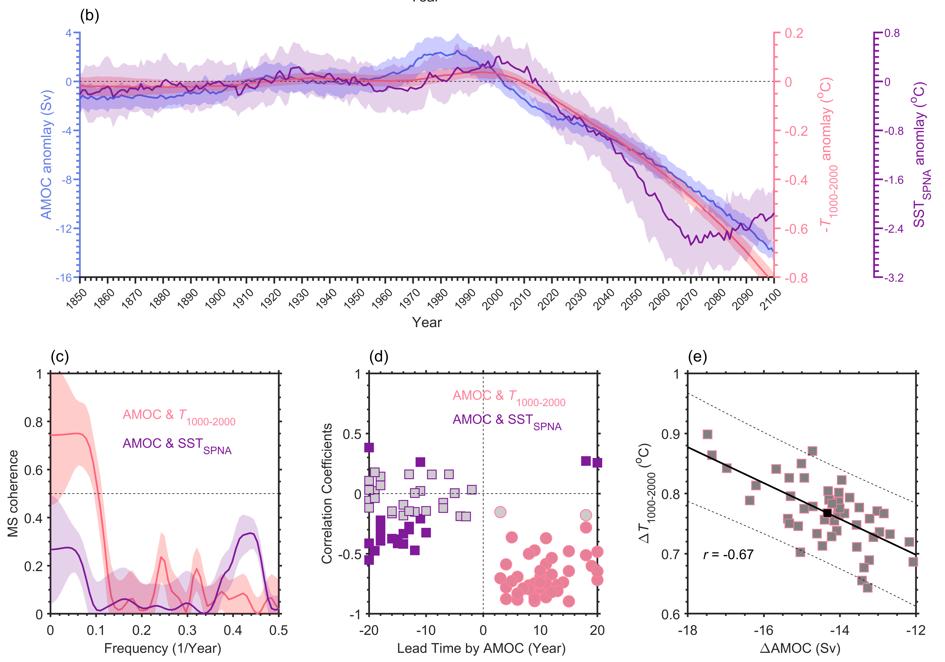Atlantic Meridional Overturning Circulation (AMOC)—a powerful system that transports heat from the tropics to the North Atlantic—plays a vital role in regulating global climate. Most climate models project a declining AMOC under anthropogenic greenhouse warming. However, it remains unclear whether and when the AMOC has slowed over the past century.
To address this question, researchers from the Institute of Oceanology of the Chinese Academy of Sciences (IOCAS), alongside collaborators from Scripps Institution of Oceanography (SIO) and University of California San Diego, analyzed observations, climate models, and ocean simulations to reveal a better fingerprint of AMOC slowdown: mid-depth (1,000–2,000 m) warming in the equatorial Atlantic Ocean.
The study was published in Communications Earth & Environment on Oct. 16.
The researchers used the MITgcm to trace how AMOC-related signals travel rapidly to the equator. Results demonstrate that the AMOC slowdown induces subsurface warming in the Subpolar North Atlantic, which triggers baroclinic Kelvin waves that propagate equatorward along the western boundary of the North Atlantic, arrive the equator and then propagate along the equator, resulting in the distinctive mid-depth warming.
"Our findings show that the equatorial Atlantic acts as a key crossroads for AMOC-related dynamical signals to spread across the global ocean," said Prof. LI Yuanlong, co-corresponding author of the study.
Climate models further confirmed that this mid-depth warming is highly coherent with the AMOC change in decadal-to-longer timescale and consistently accompanies AMOC weakening across one decade. The mid-depth temperature change provides a more stable and reliable indicator of AMOC strength than surface-based proxies, which are easily affected by atmospheric variability.
By analyzing observational data since 1960, the researchers identified a robust mid-depth warming trend that has emerged from natural variability since the early 2000s—indicating that the AMOC likely began to weaken in the late 20th century. "The equatorial mid-depth temperature signal is dynamically driven, observationally detectable, and already emerging from natural variability," said Dr. REN Qiuping, first author of the study. "It offers a valuable new metric for monitoring AMOC in a warming world."
This study provides crucial evidence that a slowdown of the Atlantic overturning circulation is underway and highlights a novel remote mid-depth fingerprint for tracking its future evolution. As the AMOC influences climate systems from the North Atlantic to the tropics, its weakening could have far-reaching consequences for global heat distribution and rainfall patterns.

Relationship between AMOC and its proxies in climate models. (Image by IOCAS)
(Text by REN Qiuping)
Media Contact:
ZHANG Yiyi
Institute of Oceanology
E-mail: zhangyiyi@qdio.ac.cn
(Editor: ZHANG Yiyi)

